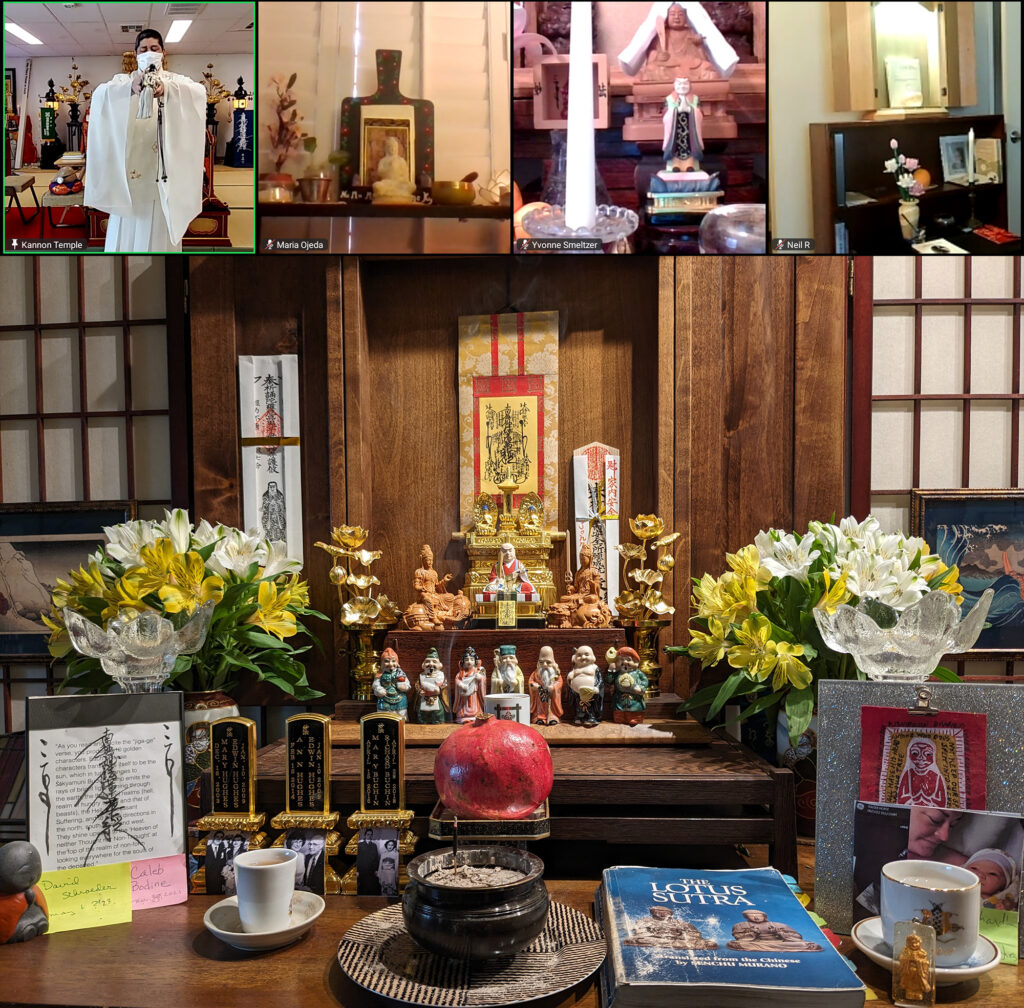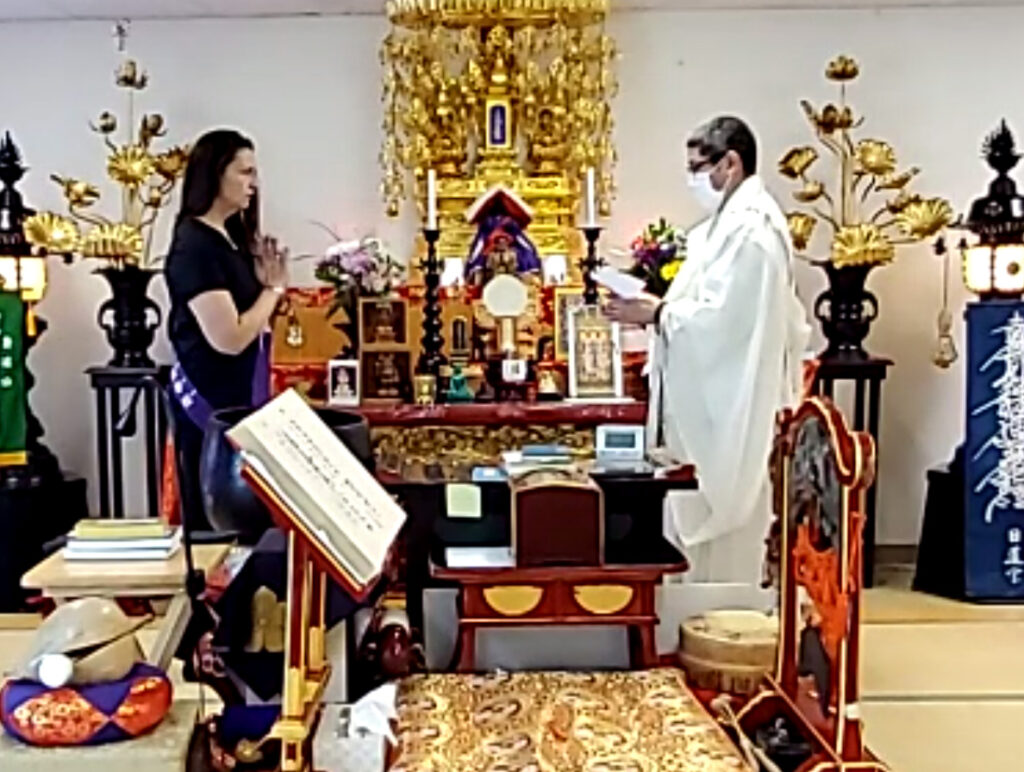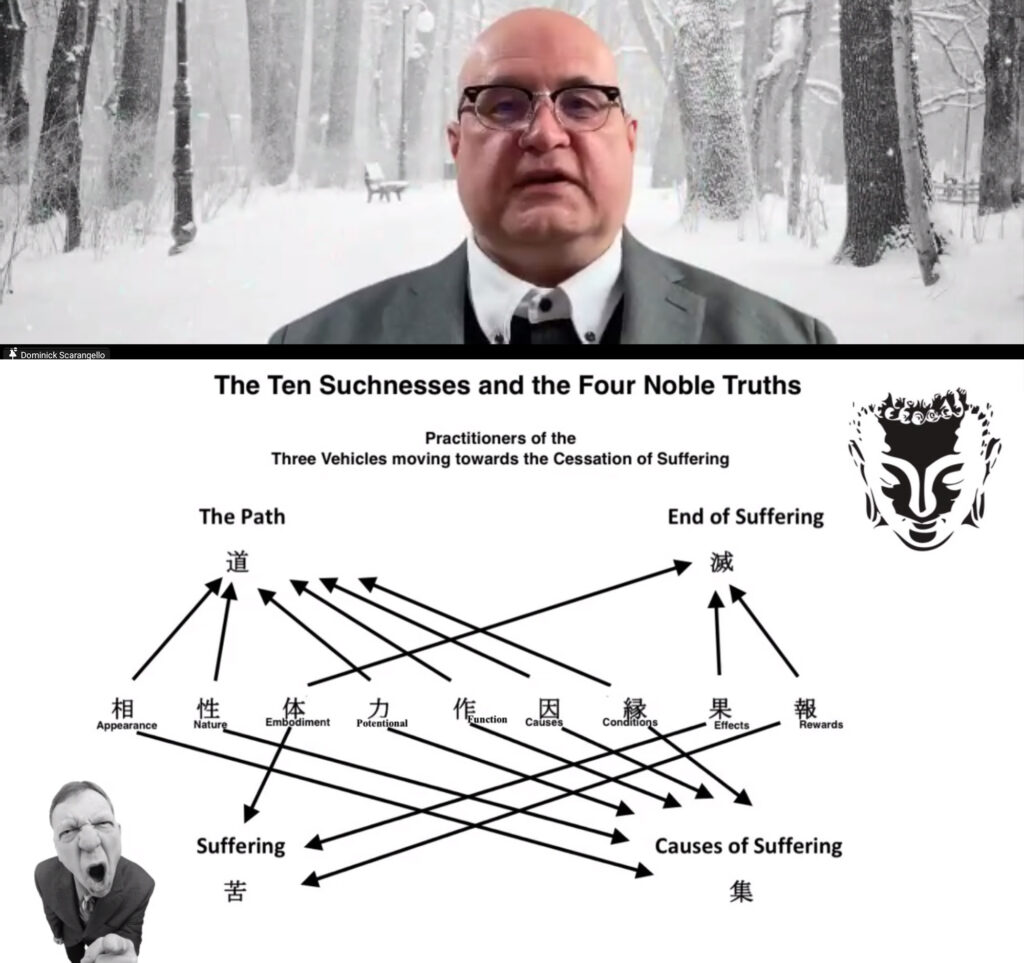When a practitioner desires to fully conform to a bodhisattva’s behavioral principles, he or she must then seek out a quiet secluded location, place palms together, pay homage universally to the buddhas of the ten directions, admit to his or her faults, and amend him- or herself of impurities. And then, in a tranquil place, the practitioner must address the buddhas of the ten directions, saying these words:
“The buddhas, the World-honored Ones, are always present in this world. Yet even though I believe in the comprehensive sutras, I am unable to clearly discern the buddhas because of my karmic encumbrances. I now take refuge in the Buddha! May you, Śākyamuni, Fully Enlightened World-honored One, please become my mentor! O Mañjuśrī, possessor of great wisdom:31 With your wisdom and understanding, please initiate me in the pure bodhisattva ways! Thereby, out of compassion for me, Maitreya Bodhisattva, the sun of surpassing mercy, will permit me to take up the bodhisattva ways; the buddhas of the ten directions will appear to bear witness for me; and the eminent bodhisattvas – those supreme great leaders who safeguard living beings, who inspire and watch over those like me – will each make themselves known by name.
“On this day I accept and embrace the comprehensive sutras! Even if I should fall into hells and suffer innumerable hardships upon reaching the end of this life, through it all I will never renounce the correct Dharma of the buddhas! By means and reason of these causes and the power of their beneficial effects, Śākyamuni Buddha now becomes my mentor and Mañjuśrī becomes my steward! O Maitreya who is to come – please impart the teachings to me! O buddhas of the ten directions – please bear witness for my assurance! O great virtuous bodhisattvas – please be my companions!
“Trusting now in the wonderful and most profound principle of the Great Vehicle sutras, I take refuge in Buddha, I take refuge in Dharma, and I take refuge in Sangha!”
The practitioner must say this three times. Having taken refuge in the Three Treasures, the practitioner must personally vow to adopt the six appropriate behaviors. Having embraced the six appropriate behaviors, she or he must then diligently strive to cultivate unwavering pure conduct, awaken a mind to universally ferry others, and adopt the eight appropriate behaviors.32 Having made this commitment, the practitioner, in a quiet secluded location, must burn fine incense, scatter flowers, offer respects to all buddhas and bodhisattvas and to the comprehensive Great Vehicle as well, and say these words:
“Here, this day, I have awakened the aspiration for enlightenment! Through the beneficial effects of this, may I universally ferry all living beings!”
After saying this, the practitioner must again humbly pay homage to all buddhas and bodhisattvas, and reflect on the comprehensive principle over the course of one to three-times-seven days. Whether renunciant or layperson, the practitioner will not need a mentor, will not need stewards, and will not need to take vows in a ceremony because of the power of accepting, keeping faith with, reciting, and internalizing the Great Vehicle sutras, and because of Universal Sage Bodhisattva’s encouragement to engage in this practice. This is the core of the true Way of the buddhas in the ten directions. By means and reason of this Way, the practitioner will naturally attain the five attributes of an enlightened one: perfection in behavioral principles, perfection in concentration, perfection in wisdom, perfection in emancipation, and perfection in the perspective that pertains to emancipation. Buddha tathāgatas become so by following this Way; the promise of their buddhahood is obtained in the Great Vehicle sutras.



